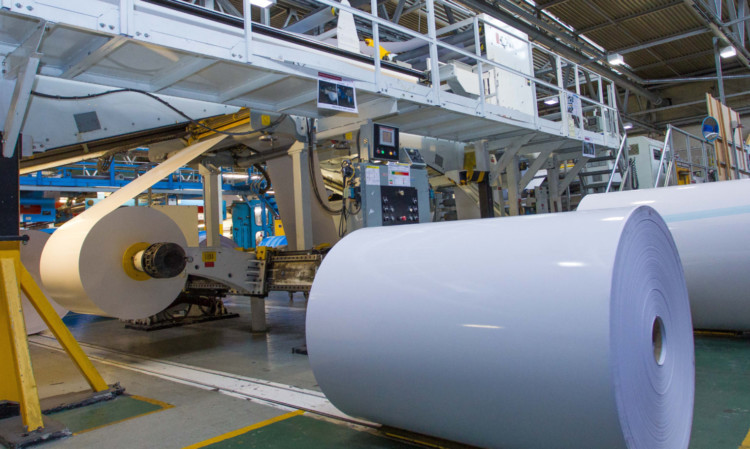Historic Fife papermaker Tullis Russell yesterday said it believed employee ownership (EO) would become increasingly prevalent in a reshaped global economy.
The chief executive of the Markinch-based firm Scotland’s largest business operating under such a structure said the arrangement had given the company the flexibility it needed to survive the economic downturn.
Chris Parr said EO had allowed Tullis to sign-off on a major partnership with a new energy supplier for the Fife mill, one of the most significant moves by the 205-year-old business in recent years.
“With our partners RWE npower renewables, a new £200 million CHP plant started providing sustainable energy for our mill this year, significantly improving our competitiveness and making a major contribution to Scotland’s renewable energy targets,” Mr Parr said.
“Whether it’s this type of strategic development in our future, working at a deeper level with our customers, or changing the business to meet new market demands, these decisions are made so much easier with our employee-owned structure.
“Our structure facilitates independent decision-making, allowing us to focus on the long-term without the short-term pressures often imposed by external shareholders.”
The company which employs more than 740 employees across three international sites and makes products for leading cosmetics and perfume houses and packaging for drinks brands such as Bombay Sapphire yesterday marked the second annual employee ownership day by calling on other organisations to follow its suit.
Tullis Russell moved to an EO structure on the back of a drive by former chairman David Erdal to improve engagement between employees at all levels of the business and external clients.
“His championing of the link between a deeper level of employee ownership and greater customer satisfaction continues to guide our strategy today,” Mr Parr said.
“Together with many Scottish businesses we face tough competition across international markets and volatile input costs.
“We need a model which allows for quick, but more considered, decision-making to keep the business sustainable and ready to react to change.
“As the UK economy looks for new approaches to cope with the uncertainties of a turbulent global marketplace there is a paradigm shift under way, and employee ownership is an important element of this new dawn.”
A total of 644 Scottish businesses operate under a co-operative or EO model, with a total employee base of 28,000 and combined revenues in excess of £4 billion.
Sarah Deas, chief executive of Co-operative Development Scotland, said: “Employee ownership is a succession solution that gives employees a meaningful stake in their company and a genuine say in how it is run.
“Tullis Russell fully demonstrates the benefits of the model: increased innovation, productivity and growth, whilst focusing on long-term sustainability.”
Employee Ownership Association CEO Iain Hasdell said: “Tullis Russell are great examples of the success and engagement that can be achieved in an employee-owned environment.”
